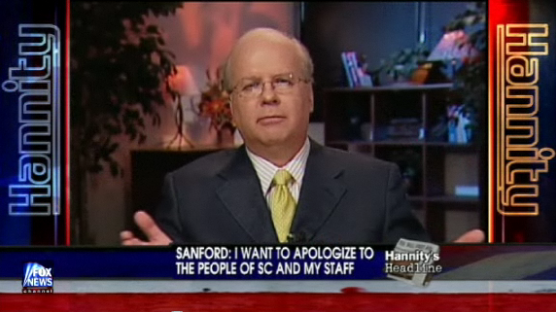Americans are increasingly concerned about the cost -- in money and personal freedom -- of the president's nanny-state initiatives.
(And yesterday’s ABC infomercial was, as always… very vague!)
While still good, President Barack Obama's political health is deteriorating, threatened by what he thought would be balm -- his ambitious plan for a government takeover of health care.
Mr. Obama remains slightly more popular than most presidents have been in their opening months. But his job approval rating has drifted down to 60% in the RealClearPolitics.com average. His disapproval numbers have nearly doubled to 33%.
More troubling to Team Obama is the growing gap between the president's approval rating and declining support for major items on his policy agenda. Independents are increasingly joining Republicans in opposition to administration initiatives that range from reviving the economy to closing the terrorist detention facility at Guantanamo.
![[Commentary]](http://s.wsj.net/public/resources/images/ED-AJ733A_rove_D_20090624191423.jpg) Chad Crowe
Chad Crowe
Things will likely get worse in the coming months as the congressional stage comes to be dominated by health care. A new poll by Resurgent Republic (a nonprofit, right-of-center education organization whose creation I helped spur), reveals some of the president's challenges. By a 60%-to-31% margin, Americans prefer getting their health coverage through private insurance rather than the federal government.
Mr. Obama's record-setting spending binge has also made Americans more sensitive to deficits and higher taxes. Thirty-nine percent said they supported "a health-care plan that raises taxes in order to provide health insurance to all Americans," while 52% preferred "a plan that does not provide health insurance to all Americans but keeps taxes at current levels." By a 58%-to-37% margin, American prefer reforming health care "without raising taxes or increasing the deficit" to government investing "new resources to make sure it is done right."
This is why Senate Finance Committee Chairman Max Baucus blanched when committee staffers priced his -- which is also the Obama administration's -- draft legislation at a cool $1.6 trillion over the next decade.
The federal government will release an update on the deficit in mid-July, which will likely increase the public's fear of deficit spending. The current fiscal year's $1.8 trillion deficit is likely to grow significantly.
There is some good news in the Resurgent Republic poll for Mr. Obama if he can sell his plan as shifting power from "insurance bureaucrats to consumers." Resurgent's poll found that Americans favor that by 57% to 38%.
But to argue, as Mr. Obama does, that a government-run health-care plan can control costs better than a market-based system is a mistake. This argument is belied by Medicare's experience. A study published by the Pacific Research Institute finds that since 1970 Medicare's costs have risen 34% a year faster than the rest of health care.
Mr. Obama's trashing of American health care as "a broken system" that must be brought "into the 21st century" doesn't resonate with most Americans. They are happy about their health care, doctor and hospital. Resurgent's poll found that 83% of Americans are very or somewhat satisfied with the quality of care they and their families receive.
Nearly everyone agrees that some reforms are needed. But it is also vital to protect areas of excellence and innovation. Stanford University professor Scott Atlas points out that from 1998 to 2002 nearly twice as many new drugs were launched in the U.S. as in Europe. According the U.S. Pharmaceutical Industry Report, some 2,900 new drugs are now being researched here. America's five top hospitals conduct more clinical trials than all the hospitals in any other developed country, according to Mr. Atlas. And a McKinsey Co. study reports that 40% of all medical travelers come to the United States for medical treatment.
Transforming health care into a government-run system would be difficult to do under any circumstances. Americans are still wary about big government. Health-care reform also always sounds better in the abstract. Public resistance rises once liberals are forced to release the details of their plans.
Meanwhile, the $787 billion stimulus package has not provided the economic kick Mr. Obama promised. The $410 billion Omnibus spending bill the president signed in March and his $3.5 trillion budget plan for next year are also adding to the river of red ink.
Health-care reform was said to be "inevitable" a few months ago. Today, its prospects are less certain, even to Democrats. The issue may even turn out to be a millstone for the party.
Americans are increasingly concerned about the cost -- in money and personal freedom -- of Mr. Obama's nanny-state initiatives. To strengthen the emerging coalition of independents and Republicans, the GOP must fight Mr. Obama's agenda with reasoned arguments and attractive alternatives. Health care may actually be an issue that helps resurrect the GOP.
By Mr. Rove - the former senior adviser and deputy chief of staff to President George W. Bush.
Printed in The Wall Street Journal, page A13 on June 25, 2009
ON THE AIR: KARL ROVE ON IRAN, HEALTH CARE AND MORE
Karl Rove joined Hannity to analyze President Obama's rhetoric on the situation in Iran. Karl says Obama's statement condemning the violence against demonstrators came too late and its tardiness sent the wrong message to the Iranian regime. Karl also talks about health care and Gov. Sanford's political future.
>> Watch Video
Posted: Daily Thought Pad

No comments:
Post a Comment